SUMMARY
This is AI generated summarization, which may have errors. For context, always refer to the full article.
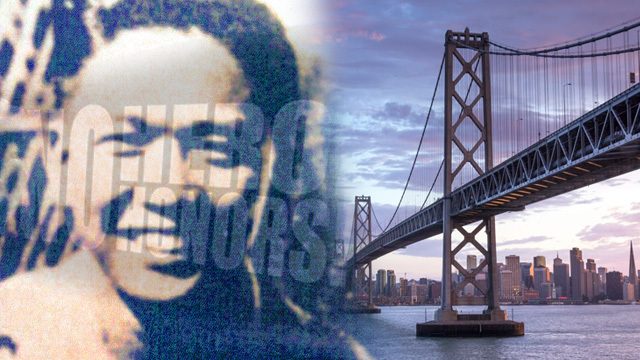
CALIFORNIA, USA – This time of the year evokes strong emotions in those who lived through the rise and fall of martial rule in the Philippines, especially those who had sought a better life and remained in the United States.
Thirty-one years ago this week, Filipinos united in modern history’s greatest street protest to topple the Marcos dictatorship. The monumental exercise, dubbed the People Power Revolution or EDSA 1, swept the widow of opposition hero Ninoy Aquino, Cory Aquino, to the presidency, fanning hopes of freedom from repression, injustice, and poverty.
This year’s anniversary stirs less optimism, however, with developments on both sides of the Pacific giving People Power I eyewitnesses a sense of deja vu.
Last year the San Francisco Bay Area-based EDSA@30 Organizing Committee spearheaded a writing project focused on Filipinos born after 1986 to keep the spirit of the movement alive and prevent autocracy. Three months later the Philippines elected a new president, who has escalated the urgency for vigilance.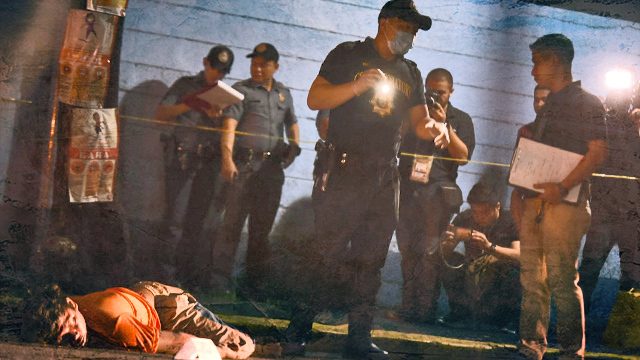
President Rodrigo Duterte’s policies and pronouncements, particularly his extrajudicial “war on drugs,” has awakened the country’s religious elite, the same entity that roused the citizenry against the Marcos regime in 1986. (READ: CBCP denounces ‘reign of terror’ in Duterte drug war)
Duterte seems undaunted by criticism from the Catholic Church, which he blasted as “full of shit.” His defiance may be informed by the result of People Power 2 or EDSA Dos, the 2001 mass protest that ousted Joseph Estrada, the second president after Aquino, following plunder charges.
The movie star-turned-politician went to jail for 7 years and was released after this successor, Gloria Macapagal-Arroyo, granted him executive clemency. He apparently lost no time in regaining political clout and was elected Mayor of Metro Manila in 2013, and again in 2016.
Arroyo did not trigger a third uprising as her presidency battled corruption and racketeering charges. She was arrested in 2011 on charges of election fraud, released, then re-arrested for alleged misuse of lottery funds. Those charges had no bearing on her voters in her bailiwick of Pampanga, who elected her as their representative to Congress. She spent years in hospital detention as her case proceeded and concluded in 2016 with an acquittal by the Supreme Court. She is currently a deputy speaker of the Philippines’ 17th Congress.
People Power did restore democratic processes and though it did little to hold officials accountable or convince voters of convicted officials’ culpability, it authenticates the potency of the masses.
To preserve the legacy of the People Power Revolution, the Filipino American Human Rights Alliance (FAHRA) is marking its 31st anniversary at a gathering headlined by Susan Quimpo, co-author of Subversive Lives: A Family Memoir of the Marcos Years, on February 25 at the United Methodist Church in Daly City.
Quimpo, who lost two brothers in the family’s activism, has been advocating against martial law revisionism since 2015, upon learning of the vice presidential aspirations of former senator Ferdinand “Bongbong” Marcos Jr. She helped organize the campaign against the strongman’s burial in the Libingan ng Mga Bayani (Heroes’ Cemetery). Defeated by Duterte and the Supreme Court, she and anti-dictatorship allies are sustaining efforts in anticipation of Marcos Jr’s apparent bid for president in 2022.
Frightening similarities
For People Power proponents in the US, current events in the adoptive country trigger familiar feelings.
“I don’t want to imply that the US is already headed to martial law, but there are developments here that remind us of the pre-martial law political situation in the Philippines,” said Mila de Guzman, author of Women Against Marcos: Stories of Filipino and Filipino American Women Who Fought a Dictator and FAHRA organizer.
“One is the use of fear mongering and so-called breakdown of law and order in order to rally people around quick-fix solutions that trample on our constitutional rights,” she added.
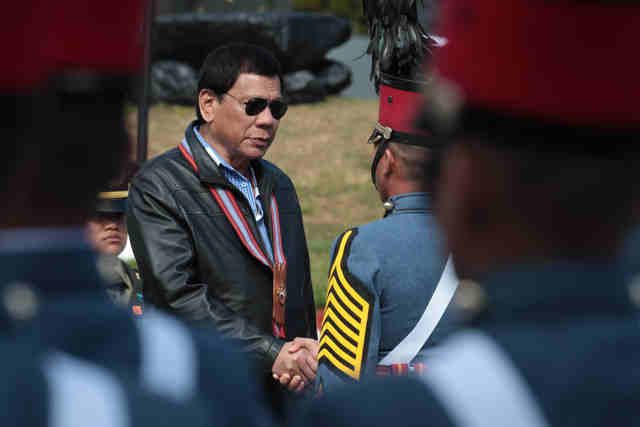
De Guzman noted that in the Philippines, Duterte’s war on drugs has cost over 7,000 Filipino lives in his first 7 months in office.
“Depriving due process for those victims and those that are now in overcrowded jails erodes our rights and is paving the way for further weakening of our democracy. Muzzling the opposition and the press through verbal abuse, intimidation, and threats of arrest threaten free speech and freedom of the press,” she said.
Filmmaker Lupita Aquino-Kashiwahara, pioneer Filipina American director of a television network program, characterized those similarities as “frightening.”
“Marcos stifled dissent by declaring war on the media and jailing journalists,” reminded the sister of the late Senator Benigno Aquino Jr and wife of Ken Kashiwahara, former chief West Coast correspondent of ABC News. “Trump hasn’t reached the incarceration stage…yet. But with his declaration that media is the ‘enemy of the people,’ what’s next?”
Last week, President Donald Trump, in a tweet prompted by the resignation of his NSA Adviser in the wake of news reports about conversations with the Russian envoy while then-President Obama had imposed sanctions for meddling in the November 8 elections, lashed out at the press for propagating “‘fake news,” listed and branded major networks as the “enemy of the American people.”
Such statements from the White House bring back dark memories to California lawyer Ted Laguatan.
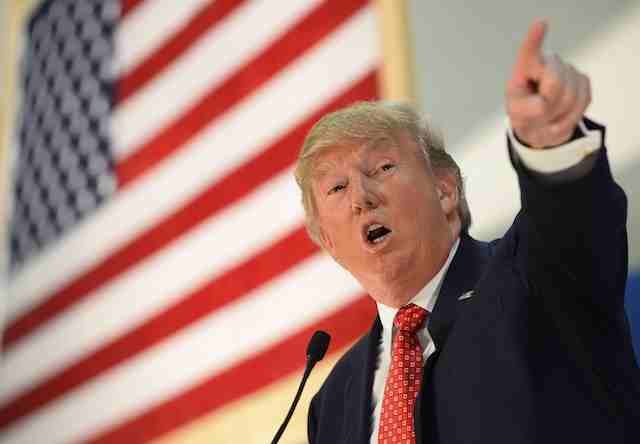
“When Marcos declared martial law, he had already become very unpopular with the people. He also could no longer run for a third term. So he used a false excuse to declare martial law. He claimed that the communists attempted to assassinate his Defense Secretary Ponce Enrile,” said the avowed Marcos foe.
Former student activist Amancio “Jojo” Liangco is wary of “executives like Duterte and Trump (who) always look for a person or a group to blame” to accomplish their “agenda.”
“These are the leaders who divide rather than unite their people. They usually get elected by posturing as outsiders but in fact, this is a ploy to fool the public into thinking that things can be accomplished by forcefulness. In turn, people forget that in a democracy, it takes the executive, legislative, and the judiciary branches to govern,” said the San Francisco attorney who is a columnist for two FilAm newspapers.
Hawaii-born Lloyd LaCuesta, the most visible Filipino American reporter in Northern California until he retired in 2012, is confident the US is not at risk of falling under military rule.
“There is a constitutional system of checks and balances – the president alone could not impose martial law,” said the former KTVU News South Bay Bureau Chief who later taught journalism at the San Jose State and Menlo College. He did point out a historical footnote: “Martial law was imposed by Abraham Lincoln during the Civil War, but Congress voted approval and it was tested in the Supreme Court.”
Beloved for his volunteer participation in Filipino activities then and now, LaCuesta was among the first reporters to enter the Philippine Consulate General in February 1986, after its gates opened following Consul General Romeo Arguelles’ defection.
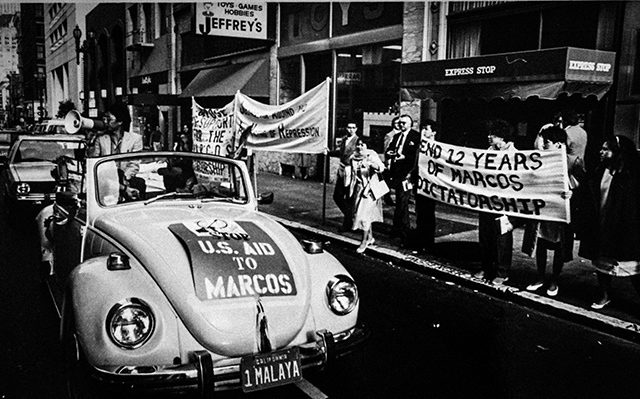
Marriage to Manila-born and bred Mona Lisa Yuchengco, an internet magazine publisher, may have boosted LaCuesta’s understanding of Philippine political history, but he had other local issues to cover those days when martial law loomed over the Philippines.
“‘If you are asking if Trump could do it: Yes, but it would have to be an extreme emergency. And even now some members of the GOP are calling for investigations into the Russian connection,” he said. “One thing for sure, these are troubling times. I’m now a retired journalist and part of The Resistance!”
Aquino-Kashiwahara would remind the US president of the role a free and aggressive press.
“In a democratic society, the media serve as one of the checks and balances of government and are necessarily adversarial. So if the president is upset, clearly the media are doing their job and should continue. The loss of press freedom and the resulting damage to the human condition during the Marcos dictatorship should be a lesson for Americans going forward.”
LaCuesta expressed faith in his compatriots.
He said the appropriate response to presidential accusations “is simply (by) doing their job and letting the public be the judge.”
Laguatan thinks the US president “‘is doing a good job of destroying himself. It is not the media who are doing it.”
“Like all tyrants, he wants to intimidate and silence the media which are an inherent part of a vibrant democracy,” he stressed. “The framers of the US Constitution deeply understood this and carved in stone the freedom of the press and freedom of expression provisions contained therein.”
Media should “strongly call out Trump whenever needed,” said De Guzman.
“If the media had not reported on (fired NSA Adviser Michael) Flynn’s calls to the Russians before Trump took office, he would still be serving as National Security Adviser,” she said. – Rappler.com
Add a comment
How does this make you feel?
There are no comments yet. Add your comment to start the conversation.